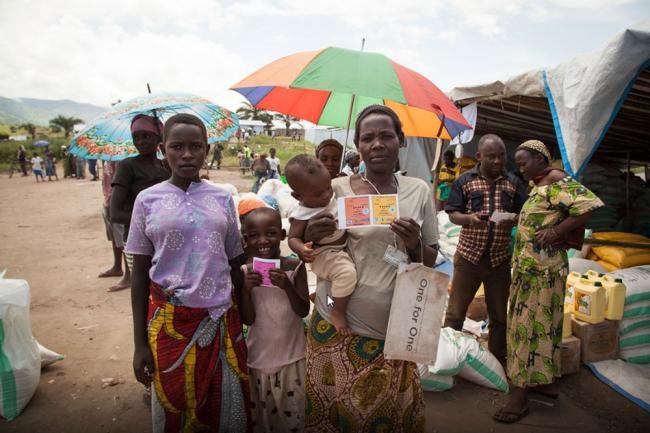
Burundi: UN agency warns 4.6 million people facing food insecurity
In a situation report, the World Food Programme (WFP) highlighted that as of 30 May, more than 265,000 Burundians had fled the country into the Democratic Republic of the Congo, Rwanda, Tanzania, Uganda and as far away as Zambia. In all, there are 1,000 new arrivals weekly into neighbouring countries.
In addition, WFP said it requires $57 million for the next six months to meet the needs of new arrivals and existing refugees, particularly in Rwanda and Uganda.
The Emergency Food Security Assessment (EFSA) conducted in April 2016 in 18 provinces across the country concluded that about 4.6 million people are food insecure. Of these, about 590,000 are severely food insecure and require urgent emergency food assistance, WFP said.
“The assessment further indicates that the socio-political crisis has aggravated an already fragile food security, nutrition, and socio-economic context in Burundi,” the agency said.
WFP noted that among the drivers of food insecurity include increasing poverty levels; reduced agricultural production; El Niño phenomena associated with heavy rainfall, flooding and landslides, which resulted in displacements and destruction of crops; adoption of severe livelihood coping strategies, such as reduction of expenditure on agricultural inputs; and disruption of markets.
The assessment recommends provision of short-term food assistance and farm inputs for shorter-season crops.
In addition, the assessment recommends strengthening of resilience activities for vulnerable food insecure households and strengthening or expanding social protection programmes for the most vulnerable, to enable them to cope with shocks, WFP said.
Photo: WFP/Leonora Baumann
Source: www.justearthnews.com
Support Our Journalism
We cannot do without you.. your contribution supports unbiased journalism
IBNS is not driven by any ism- not wokeism, not racism, not skewed secularism, not hyper right-wing or left liberal ideals, nor by any hardline religious beliefs or hyper nationalism. We want to serve you good old objective news, as they are. We do not judge or preach. We let people decide for themselves. We only try to present factual and well-sourced news.







